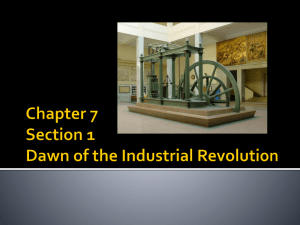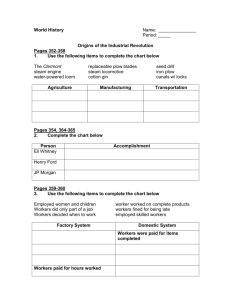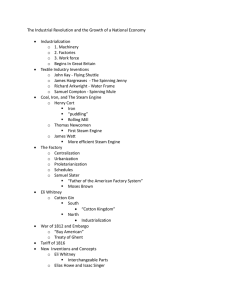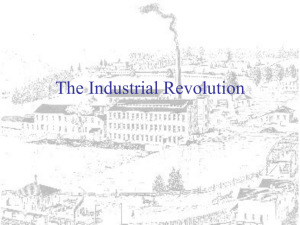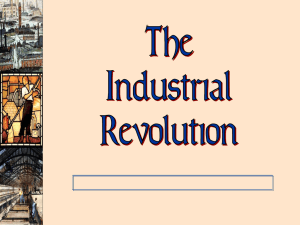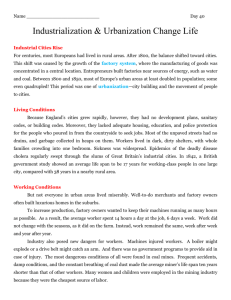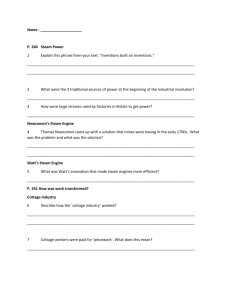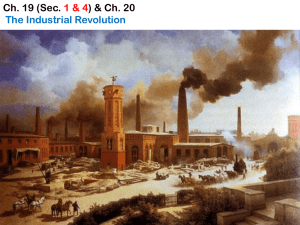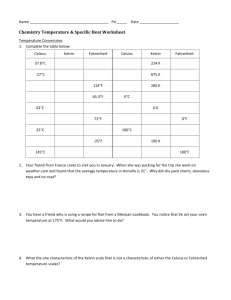Chapter 19 Study Guide
advertisement
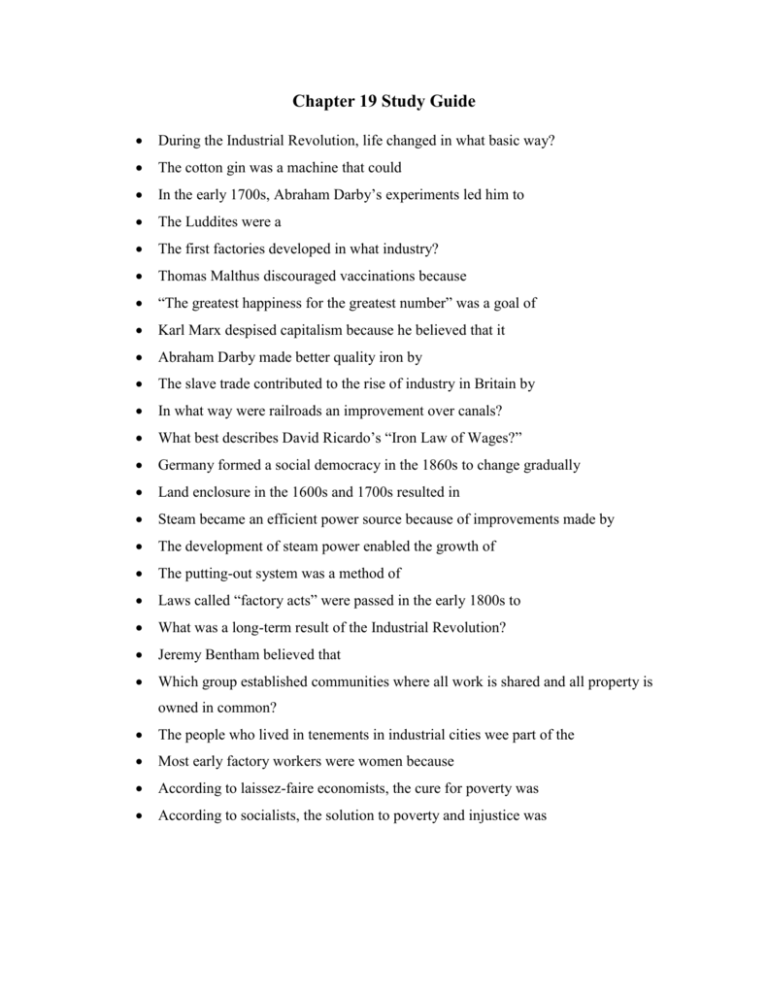
Chapter 19 Study Guide During the Industrial Revolution, life changed in what basic way? The cotton gin was a machine that could In the early 1700s, Abraham Darby’s experiments led him to The Luddites were a The first factories developed in what industry? Thomas Malthus discouraged vaccinations because “The greatest happiness for the greatest number” was a goal of Karl Marx despised capitalism because he believed that it Abraham Darby made better quality iron by The slave trade contributed to the rise of industry in Britain by In what way were railroads an improvement over canals? What best describes David Ricardo’s “Iron Law of Wages?” Germany formed a social democracy in the 1860s to change gradually Land enclosure in the 1600s and 1700s resulted in Steam became an efficient power source because of improvements made by The development of steam power enabled the growth of The putting-out system was a method of Laws called “factory acts” were passed in the early 1800s to What was a long-term result of the Industrial Revolution? Jeremy Bentham believed that Which group established communities where all work is shared and all property is owned in common? The people who lived in tenements in industrial cities wee part of the Most early factory workers were women because According to laissez-faire economists, the cure for poverty was According to socialists, the solution to poverty and injustice was
